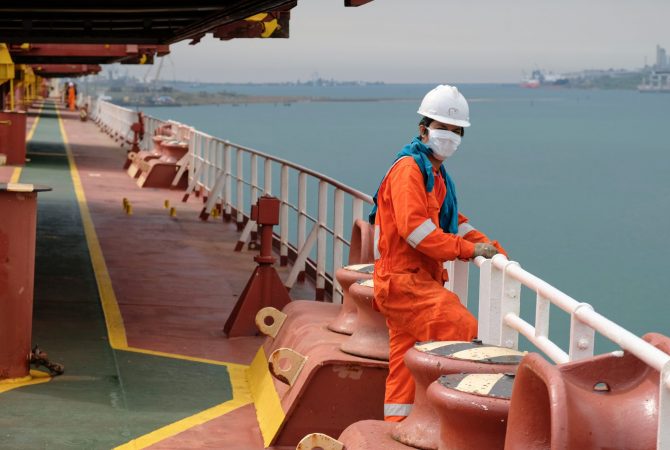Jamaica has facilitated repatriation and crew changes for more than 3,700 seafarers since the start of the coronavirus (COVID-19) pandemic, through a successful inter-agency effort.
This was disclosed by Prime Minister of Jamaica, the Most Hon. Andrew Holness, as he addressed the virtual launch of Jamaica’s bid for a seat on the International Maritime Organization (IMO) 40-member Council on April 15.
Mr. Holness said Jamaica is proud to be among the first IMO Member States that responded positively to initiatives and calls for action made by the United Nations and its agencies, among others, to designate seafarers as “key workers”.
“We did so in law by including a specific and unique scheme to facilitate seafarers’ transit through our air[ports] and seaports” the Prime Minister explained.
Mr. Holness said Jamaica’s actions are in solidarity with this year’s IMO theme ‘Seafarers: At the Core of Shipping’s Future’.
These actions came against the background of seafarers being stranded at sea as the COVID-19 pandemic unfolded.
“Very early in the pandemic in 2020, we had to grapple with and resolve challenges, which impacted a range of critical sectors, including shipping, and notably, the repatriation arrangements for our own cruise-ship workers,” the Prime Minister pointed out.
He further said: “We remain concerned, however, about the hundreds of thousands of seafarers stranded, not able to join or leave ships to effect the crew changes which are so vital to the functioning of the global supply chain.”
In outlining the process that Jamaica has undertaken, Director of Legal Affairs at the Maritime Authority of Jamaica (MAJ), Bertrand Smith, explained that Jamaica is one of if not the only Caribbean country to effect the necessary changes to legislation to facilitate seafarers.
He said seafarers’ contracts of employment are usually for a period of four months and that according to the Maritime Labour Convention, to which Jamaica has signed, crews should change every four months.
Seafarers have a right to repatriation at the end of their four-month contracts and are, therefore, entitled to go home.
At that juncture, a replacement crew would have to join the ship to continue the voyage.
This has, however, not been happening as it should as a result of the closure of several borders arising from the COVID-19 pandemic, rendering many seafarers “trapped at sea” beyond their contract periods.
Mr. Smith noted that this could potentially suspend or stop global trade, adding that “the IMO along with other industry groups basically pleaded with governments to at least open their borders to seafarers who are non-nationals.
The Legal Affairs Director explained that countries were being asked to designate seafarers as essential service providers and to allow them to leave the country for the purpose of repatriation and enter the borders for the purpose of joining ships.
In response to this request, Jamaica, in June of 2020, passed the relevant Disaster Risk Management Order that designated seafarers as essential workers and created a regime to facilitate approved personnel transiting Jamaica for the purpose of joining a ship or leaving a ship for the purposes of repatriation.
The Maritime Labour Convention was incorporated in Jamaica’s Shipping Act in December 2020 to ensure that the legislation supported these actions in providing solutions to the plight of seafarers at sea.
The process is being managed by the Maritime Authority of Jamaica in conjunction with the Ministry of Health and Wellness, the Passport, Immigration and Citizenship Agency and the Shipping Association of Jamaica.




